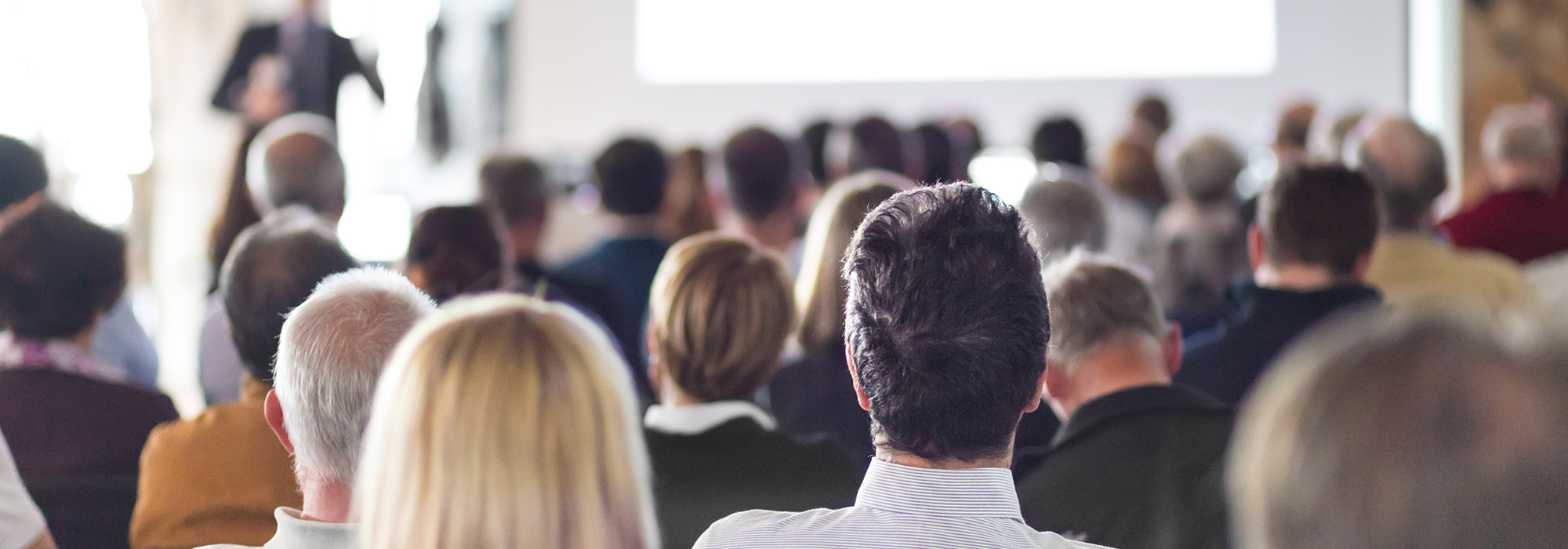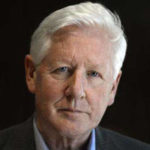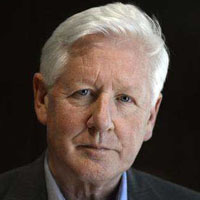
It is with great pleasure that I close this important convention. The last three days have been a vital step in rebuilding the Liberal Party, in giving shape to the ideas and priorities we have for Canada and in giving new life to the Liberal movement. This convention has shown Canadians that the Liberal Party of Canada is more than just “alive and kicking.” We are thriving. We are changing. This has been the best-attended non-leadership convention in living memory. I want to thank all of you for participating and for renewing your commitment to the Liberal movement.
This convention has been about change, about openness, about basing policies on facts and evidence, about Canada and what it stands for at home and in the world. About the things that define our great political institution and that motivate Liberals across the country. It is about the great changes happening all around us, here and everywhere.
We Liberals have always embraced change. We are changing ourselves so we can lead change in Canada. This convention marks the beginning of our resurgence. It also marks the beginning of the end of the Harper government.
I want to offer my warm congratulations to those who ran for elected office at this convention. I want to congratulate the winners but I want to say to everyone, we need your talent, your engagement and your ideas. Everyone needs to stay front and centre.
While the convention didn’t adopt every one of the changes proposed, let us be clear: the Liberal Party is open, transparent and part of a movement. We need the ideas and energy of all Canadians, and we must continue to fight for even more openness in the years ahead.
We had a great victory when we welcomed supporters to our party. We have seen where we need to go, and we will continue to take new routes to get there. We have only just over 100 ridings with 100 members, and we need fresh faces and new blood. I’m committing today that over the course of this year, we will work together to ensure that by 2013 we have 200 ridings, each with over 100 members. A hundred more ridings that have 100 members.
In the last election, which was a tough experience for all of us, one thing I heard a lot of, as I’m sure you did, was that Canadians weren’t always sure who we are as a party. It wasn’t easy to hear that. The Canadian people were simply telling us how they felt, and our success depends on our ability to listen.
Politics is first and foremost about values and ideas, and it is from ideas that policies spring. Our values and ideas are by far our biggest strength, and they are in fact closer to the bedrock of Canada and Canadians than what is on offer from the Conservatives or the NDP. We are pragmatic, reasonable people; we don’t have theories or ideologies rattling around in our heads preventing us from dealing with the real concerns of Canadians.
When Galileo told the conformists of the day “But it moves,” he was embracing a liberal principle — there is no point basing policies on the orthodoxies of the moment.
Freedom — individual and collective freedom — is a core Liberal value. All parties will claim this value as their own, of course. The Harper crowd, in particular, love to talk about freedom as central to who they are. But only the Liberal Party went so far as to actually establish a Charter of Rights and Freedoms, enshrine it in the Constitution and thereby fundamentally strengthen the rights of all Canadians. The Charter is about diversity and dignity, about understanding that our country is a remarkable and ongoing celebration of pluralism and difference, about what we have in common. Years before we had the Charter, we Liberals put in place official bilingualism, to ensure that French- and English-speaking people had the right and the freedom to interact with their national government in their first language. And more recently, over the fierce objections of the Conservatives, we were the party that introduced and passed same-sex-marriage legislation, which gives Canadians the freedom to marry whomever they want. Not a bad record on freedom, I’d say. Unrivalled by any other political party, in fact.
Fairness is another basic Liberal value, and by that we mean all Canadians should expect a basic standard of living and quality of life.
Equality of opportunity is another essential Liberal value. Intergenerational equity — in other words, not saddling the young with unfair burdens from the past — is a hallmark value of modern Liberalism.
From Laurier through the fights against regulation 17 in Ontario; from the Quiet Revolution to official bilingualism; from our support of la francophonie to our efforts to protect Canada’s reputation as a maker of peace: the journey of the Liberal Party and the people of Quebec is a voyage that must continue.
The celebration of diversity is a cornerstone Liberal value. From the promotion of immigration, which opened up the west of Canada, to our celebration of Canadian multiculturalism today, we reaffirm our commitment to all the communities of Canada.
We have a very direct message to the people of Quebec. Our birth as a party on Canadian soil more than 160 years ago was based on a profound principle of partnership. Overlooking the Ottawa River next to the Peace Tower is the statue of Baldwin and Lafontaine, the fathers of reform, parliamentary and accountable government. What they stood for, we stand for. Quebec’s identity is precious to us. To speak personally, affirming the vitality and permanence of Quebec’s place at the heart of the federation has always been a touchstone of my political life.
I know full well that for many Quebecers the Liberal Party has sometimes been less than it needs to be. We ask only that your hearts and minds stay open to us, this great movement, as we work to regain your confidence.
From Laurier through the fights against regulation 17 in Ontario; from the Quiet Revolution to official bilingualism; from our support of la francophonie to our efforts to protect Canada’s reputation as a maker of peace: the journey of the Liberal Party and the people of Quebec is a voyage that must continue.
Liberals know we can’t do any of these things without an advanced, competitive economy and a highly skilled workforce. So innovation and productivity is a bedrock Liberal value. Accepting and embracing change is the heart of the liberal movement worldwide.
We Liberals know that a strong, productive economy means little if it is achieved at the expense of the environment that sustains the planet and all of us. What could be more important than that? Environmental responsibility is therefore obviously a defining Liberal value.
And there is at least one more defining Liberal value — promoting, advancing and protecting basic human rights and democracy, both at home and abroad. Advancing human rights around the world has always been a seminal Liberal value, as has advancing our democracy and good governance at home.
These are our enduring Liberal values. And these are some of the major policies and initiatives successive Liberal governments put in place over the past half century to advance those values. This is who we are. This defines us. Make no mistake about it. We Liberals didn’t invent these values, but we understood them to be the values of most Canadians, and we governed accordingly, whether it was Lester Pearson at the helm establishing the CPP and medicare, Pierre Trudeau behind the wheel putting in place the Charter and multiculturalism, or Jean Chrétien and Paul Martin conducting the train as they established the National Child Benefit, invested in R&D and infrastructure, eliminated the deficit, paid down debt and signed the Kyoto Protocol.
What we have been doing here is creating an alternative. A Liberal Party that can credibly offer an alternative to the prospect of an enduring Harper era. If we’re going to ask Canadians to bring the Harper era to a close, we need to offer them a Liberal Party that is open to our future, open to optimism about this country and open to participation by Canadians who want to change politics.
We are not slaves to ideologies or theories, but our party has a strong, clear and resonant identity nonetheless. At its very core, that identity is doing the bold as well as the everyday things that Canada needs at given points in our nation’s history in a way that is true to the enduring values that I have sketched out. Our values are our biggest strength. And we need to be very clear on them when we talk to Canadians, because values tell Canadians who we are, and because we are very different than other parties when measured this way. We can never again allow Canadians to be unclear or puzzled by what we stand for, who we are.
It is important to remember and know where we came from, to celebrate what we’ve done. It is even more important today to know where we are going.
Canadians are rightly concerned about the economy. We live in a time of very serious challenge. We have had to learn the hard lesson that we can’t take our prosperity for granted, and that a recovery for all is going to take an unprecedented commitment to innovation, investment and education. This is not a small problem, and it is going to take more than Conservative tinkering. That is why tomorrow, I’m starting a two-week skills tour — talking to people in colleges and training facilities about what we need to grow. We need nothing less than to get started on a bold new plan for a prosperity that includes everyone.
What we have been doing here is creating an alternative. A Liberal Party that can credibly offer an alternative to the prospect of an enduring Harper era. If we’re going to ask Canadians to bring the Harper era to a close, we need to offer them a Liberal Party that is open to our future, open to optimism about this country and open to participation by Canadians who want to change politics.
Fairness has been taking a beating in Canada lately. Good, well-paying jobs, even for the well-educated, are not as plentiful as they should be in a country as advanced as ours. And linked to this reality is a growing and corrosive income polarization that undermines our social cohesion. We need a new approach.
I see a country where every child will come to school hungry to learn and not hungry for food, where innovation and productivity will be watchwords and not things to fear, where our businesses get the capital they need to create jobs, where the quest for fairness and sustainability will be seen as the friends of prosperity and not its adversaries.
The plight of Aboriginal Canadians — with abject poverty and health and education outcomes well below what Canadians regard as acceptable — has been inadequately addressed for far too long. New, bold approaches are needed to give our First Nations people the quality of life and future prospects that most Canadians expect. We Liberals must tackle this head on, as we tried to do with the Kelowna Accord, which was also scrapped by the Harper government. The Harper jail agenda (it’s not a crime agenda, or a safe streets agenda, it’s a jail agenda) will affect Aboriginal Canadians more than anyone else. There are no facts to back up this agenda, just ideology and rhetoric, and we Liberals have to find the fight in us to bring our criminal justice policies back to common sense.
It is no exaggeration to say that Canada’s reputation in the world is in tatters after five years of the Harper government’s narrow-minded, “my way or the highway” approach to foreign affairs. Today, Canada is regarded internationally as a climate change denier, led by a government that doesn’t believe in science; that sees highly complex conflicts around the world in simplistic, black and white terms; a country that has abandoned its historic role as a champion of multilateralism. We Liberals have to rebuild that reputation brick by brick — a once enviable reputation that was established over more than half a century, and was then wiped out in half a decade under the Harper regime.
Health care that is affordable and accessible to all is at risk because the Harper government has abandoned a national voice or role in ensuring medicare not only survives but gets healthier to address our aging population and the needs of future generations.
The federal government has always played a vital role in securing medicare — until Harper came along. The Harper crowd has forgotten that while the provinces deliver health care, the federal government — a Liberal government — created medicare as a national program. That is why medicare has endured and served us so well. But we also know that the financial coverage for doctors and hospitals that worked in 1968 is not enough for the 21st century. Medication and services outside the acute-care model have to be accessible to all Canadians and as Don Tapscott said during this convention, we need to understand the impact of the Internet on our awareness of our health.
In the coming weeks we will be launching round tables and networks — an unparalleled on-line and in-person dialogue with the Canadian people, in these and other policy areas, to engage and consult Canadians concerned about their country’s direction and help the Liberal Party fashion an agenda for the future, one that reflects our values and responds effectively to these major issues.
In each generation, the Liberal Party has come forward with a vision and a plan. This is what we need to do today. I see a progressive decade ahead for Canada. I see a country where every child will come to school hungry to learn and not hungry for food, where innovation and productivity will be watchwords and not things to fear, where our businesses get the capital they need to create jobs, where the quest for fairness and sustainability will be seen as the friends of prosperity and not its adversaries, where we see fair and efficient taxes as the critical means to pay for what we need to do together, and where we make the economy a place of change and fairness and not a place of exploitation and greed.
We Liberals do not resent success and we do not punish failure. We have understood that the prosperity of the few is never enough, that we need to ensure equality of opportunity, and that if we achieve wealth by polluting the world for future generations we have done ill, and not good.
This convention has pointed the way to change and we now have to put that change into action.
We need to get more Canadians engaged in the political process than ever before. We need an Ottawa winter to be followed by a Canadian spring, where Canadians by the thousands are involved as never before in creating a better country. And the Liberal Party needs to be — and mark my words it will be — the vehicle for that progress.
Let me leave you with two thoughts — “imagine” and “make it happen.” We need the courage to imagine a better world, a better country, a better party. And we need the persistence and determination and competence to make it happen. I know we can do it.
Excerpted from his closing address to the Liberal Biennial Convention in Ottawa on January 15, 2012.









